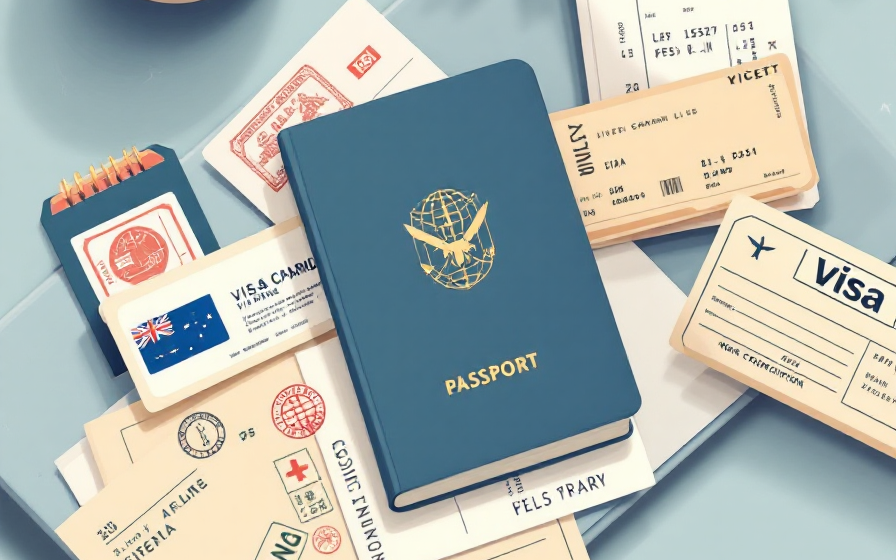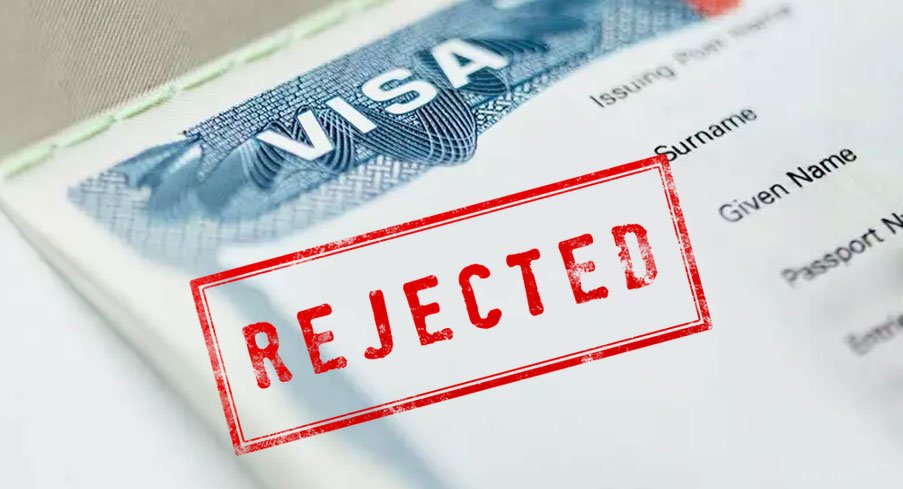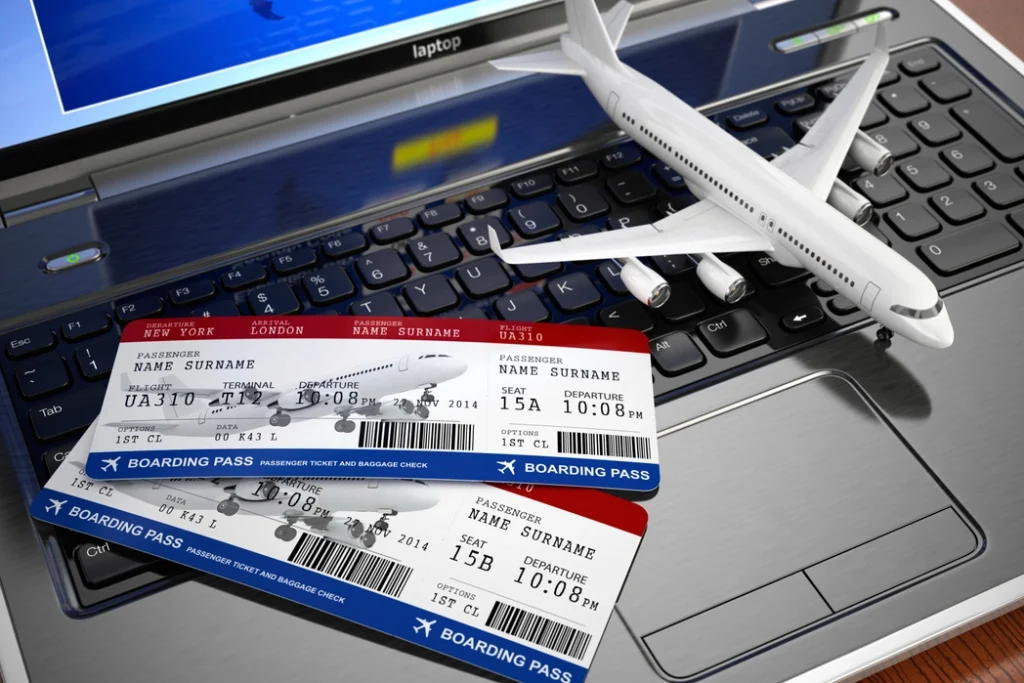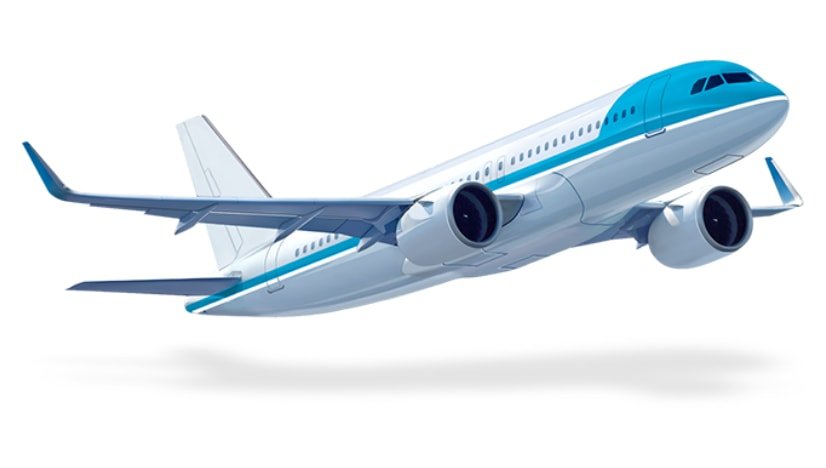The question that keeps thousands of visa applicants awake at night isn’t just about gathering documents or preparing for interviews—it’s about that crucial requirement for “proof of onward travel.” Should you risk thousands of dollars buying flights before your visa is even approved? What if your application gets denied? What if processing takes longer than expected?
The good news is that most embassies worldwide not only accept but often prefer Dummy Ticket for Visa applications over purchased tickets. This practice has become so standard that major consulates explicitly recommend using flight reservations rather than paid bookings. Understanding why this works and how to do it properly can save you significant money while meeting all embassy requirements.
This comprehensive guide explores exactly which embassies accept dummy ticket for visa, why they prefer them, and how to ensure your documentation meets official standards for successful visa applications.
Understanding Embassy Requirements
Embassies require proof of travel plans to verify that applicants have genuine intentions to visit and, crucially, to leave the destination country within authorized periods. This requirement serves multiple purposes beyond simple bureaucracy.
Immigration officers want to see evidence of financial planning, realistic travel timelines, and commitment to compliance with visa conditions. However, they also understand the financial risk that advance ticket purchases create for applicants.
The key insight is that embassies need proof of travel intent, not proof of payment. A legitimate flight reservation demonstrates planning, financial capability, and departure intentions without requiring the financial commitment that purchased tickets demand.

The Official Embassy Position
Major embassy systems worldwide have recognized that requiring advance ticket purchases creates unnecessary hardship for applicants. German consulates explicitly state in their official guidelines that flight reservations are not only acceptable but preferred over purchased tickets.
The Schengen area, covering 27 European countries, specifically uses the term “flight itinerary” in their documentation requirements rather than “purchased tickets.” This language choice reflects understanding that responsible travel planning doesn’t require financial commitment before visa approval.
US visa applications similarly accept flight reservations through the DS-160 form, which requests travel information rather than payment proof. Canadian immigration also recognizes flight reservations as adequate evidence of travel planning.
Embassy Acceptance Patterns Worldwide
European Schengen Zone
The Schengen area represents the largest acceptance zone for dummy tickets, with all 27 member countries operating under unified documentation standards. French, German, Italian, and Dutch consulates specifically recommend using reservations rather than purchased tickets.
This acceptance stems from practical recognition that most Schengen trips involve multiple countries and flexible itineraries that make advance ticket purchases impractical and risky for travelers.
The official Schengen visa handbook explicitly mentions “flight reservations” as acceptable documentation, providing clear regulatory backing for Dummy Ticket for Visa usage throughout Europe.
North American Visa Systems
United States B1/B2 tourist visa applications regularly accept flight reservations as evidence of travel planning. The DS-160 online form requests detailed itinerary information that dummy tickets provide effectively.
Canadian visitor visa applications similarly require proof of departure plans, which immigration officers expect to see in the form of flight reservations or itineraries rather than expensive purchased tickets.
Both countries recognize that requiring advance purchases would create barriers to legitimate travel while not improving the quality of visa decision-making.
Middle Eastern and Asian Markets
UAE visa applications commonly accept flight reservations, particularly for family visit and tourist visas. Dubai and Abu Dhabi consulates work with travel agents who routinely provide temporary reservations for visa documentation.
Singapore, Malaysia, and Thailand frequently require proof of onward travel for tourist visa approval, which Dummy Air Ticket for Visa applications satisfy effectively without financial risk.
These countries recognize that tourism involves flexible planning that benefits from reservation-based documentation rather than rigid advance purchases.
How Dummy Ticket Airlines Integration Works
Airline Booking System Integration
Professional dummy ticket services operate through official airline booking systems, creating genuine reservations that appear identically to embassy verification systems. These aren’t fake documents—they’re real booking entries in global distribution systems.
Dummy Ticket Airlines partnerships enable services to create verifiable PNR codes that embassy officers can confirm through standard airline verification channels. This legitimacy distinguishes quality services from questionable alternatives.
The booking process follows identical procedures used by travel agents and airlines for customer reservations, with the only difference being payment timing and ticket issuance.
Verification System Compatibility
Embassy verification systems are designed to confirm reservation authenticity through airline databases, not to check payment status. When consular officers input PNR codes, they see identical information regardless of whether tickets are paid or held.
This technical reality supports dummy ticket for visa usage because embassy verification processes treat them identically to purchased reservations. The information quality and verification outcome remain consistent across both approaches.
Modern embassy systems recognize that legitimate travel planning often involves flexible bookings, and sophisticated consular officers appreciate applicants who demonstrate financial responsibility.
Embassy-Specific Requirements
Documentation Standards
Quality Dummy Ticket for Visa services ensure their reservations meet embassy-specific formatting and information requirements. This includes proper passenger details, realistic routing, and appropriate validity periods.
Different embassies may prefer different presentation formats, but the core information requirements remain consistent: passenger names matching passports, travel dates, destinations, and verifiable booking references.
Professional services understand these nuances and create reservations that align with individual embassy expectations while maintaining universal acceptability.
Processing Timeline Considerations
Embassy processing speeds vary significantly, requiring dummy ticket validity periods that align with realistic approval timelines. Schengen applications might process within days, while US visas could take weeks.
Most professional services offer reservation validity periods of 72 hours to 14 days, allowing flexibility for different embassy processing schedules without compromising documentation quality.
Understanding your specific embassy’s processing patterns helps select appropriate dummy ticket for visa services and timing for optimal application outcomes.
Common Misconceptions and Concerns
Legitimacy Concerns
Some applicants worry that using dummy ticket for visa might appear deceptive or unprofessional to embassy officers. These concerns stem from misunderstanding the difference between legitimate reservations and fraudulent documents.
Embassy officers are experienced professionals who understand travel industry practices and recognize legitimate reservations. Many have likely used similar booking holds for their own travel planning.
The widespread acceptance and official endorsement by numerous embassies demonstrates that dummy ticket for visa
represent standard practice rather than questionable alternatives to traditional approaches.
Verification Fears
Applicants sometimes fear that embassy verification will reveal dummy tickets as “fake” or problematic. In reality, professional dummy ticket services create genuine reservations that pass all standard verification procedures.
Embassy verification systems confirm reservation existence and details through the same channels used for any airline booking. Payment status doesn’t affect verification outcomes or embassy decision-making processes.
Quality dummy ticket for visa providers welcome embassy verification because their reservations are legitimate and will confirm successfully through official channels.
Success Stories and Real Examples
Schengen Visa Applications
A German family applying for US tourist visas used dummy tickets to demonstrate their planned 3-week vacation itinerary. The Munich consulate processed their application smoothly, with officers appreciating the detailed travel planning evident in their reservation documentation.
The family saved over €3,000 by avoiding advance ticket purchases while providing embassy-quality documentation that supported their successful visa approval.
Business Travel Scenarios
A Canadian business traveler applying for multiple European visas used dummy tickets for his complex multi-city itinerary. The flexible reservation approach allowed him to adjust travel dates based on client meetings while maintaining consistent visa application documentation.
His applications processed successfully across four different Schengen consulates, demonstrating how professional dummy ticket services provide consistent, reliable documentation across multiple embassy systems.
Student Visa Success
An Indian student applying for UK study visa used dummy ticket for visa to show his intended arrival and departure dates around his academic program. The reservation provided the travel proof required while maintaining flexibility for housing arrangements and course schedules.
The student visa approval process proceeded smoothly, with the dummy ticket satisfying all documentary requirements without financial risk during uncertain processing periods.
Best Practices for Embassy Acceptance
Provider Selection Criteria
Choose dummy ticket services that operate through legitimate airline booking systems and can provide verifiable PNR codes. Research provider backgrounds and customer testimonials to ensure reliability.
Quality providers should explain their booking processes transparently and offer customer support throughout your visa application process. Avoid services making unrealistic promises or charging hidden fees.
Professional services maintain relationships with embassy verification systems and understand current acceptance standards across multiple consular jurisdictions.
Application Integration
Ensure dummy ticket information matches exactly with other visa application documents. Consistency in travel dates, destinations, and passenger details is crucial for application credibility.
Coordinate dummy ticket timing with other application elements to ensure all documents remain valid throughout embassy processing periods. This coordination prevents documentation gaps that could delay applications.
Prepare honest explanations about your use of reservations if embassy officers ask during interviews. Most officers appreciate applicants who follow official guidance about documentation requirements.
Country-Specific Acceptance Details
European Union Standards
All EU member states operating under Schengen agreements accept flight reservations for visa applications. This includes major destinations like France, Germany, Italy, Spain, and Netherlands.
The unified Schengen documentation standards ensure consistent acceptance across all member countries, making dummy tickets reliable for complex multi-country European itineraries.
Recent regulatory updates have reinforced acceptance of reservations while emphasizing the importance of using legitimate booking services rather than fake documents.
Popular Tourist Destinations
Thailand, Malaysia, Singapore, and Philippines commonly accept dummy ticket for visa applications, recognizing that flexible travel planning benefits both visitors and local tourism industries.
Australia and New Zealand accept flight reservations for various visa categories, particularly tourist and working holiday visas that involve uncertain travel dates.
Japan accepts flight reservations for tourist visa applications, understanding that peak season planning often requires flexibility that advance purchases cannot provide.
Professional Service Integration
Quality Assurance Standards
Established dummy ticket providers maintain quality standards that ensure embassy acceptance while protecting customer interests. These standards include accurate information, proper formatting, and reliable customer support.
Professional services verify all reservation details against passport information and visa application requirements, preventing discrepancies that might raise embassy concerns.
The investment in professional services pays dividends through reduced application risks and improved approval likelihood compared to amateur approaches or questionable alternatives.
Customer Support Infrastructure
Quality providers offer comprehensive support throughout visa application processes, including reservation modifications, embassy verification assistance, and documentation updates as needed.
This support becomes crucial when embassy requirements change or processing delays require reservation extensions to maintain documentation validity.
Professional customer service provides peace of mind for applicants who understand their documentation meets embassy standards and can be adjusted as circumstances require.
Future Trends in Embassy Acceptance
Digital Verification Systems
Embassy systems continue evolving toward digital verification processes that make dummy ticket acceptance more seamless and reliable. Modern PNR systems integrate more effectively with consular verification networks.
These technological improvements enhance confidence for both applicants and embassy officers who can verify reservation authenticity instantly through official airline channels.
The integration of advanced verification systems supports continued dummy ticket viability while reducing administrative burdens on embassy processing staff.
Policy Standardization
International coordination between embassy systems is leading toward more standardized approaches to travel documentation requirements, generally favoring flexible reservation-based systems.
This standardization benefits travelers by creating more predictable requirements across different countries while maintaining the financial protection that dummy tickets provide.
The trend toward digital-first embassy operations supports reservation-based documentation that aligns with modern travel planning practices.
Conclusion: Embassy Acceptance is Standard Practice
The evidence is clear: embassies worldwide not only accept Dummy air Ticket for Visa applications but often prefer them over expensive advance purchases. This acceptance reflects practical understanding of modern travel planning and financial protection for applicants.
From Schengen consulates to US immigration, from Canadian visitor visas to Asian tourist applications, the pattern remains consistent: legitimate flight reservations satisfy embassy requirements while protecting applicant finances.
The key to success lies in using professional services that create genuine reservations through official airline systems, ensuring embassy verification confirms authenticity and acceptability.
Smart travelers understand that embassy acceptance of dummy tickets represents enlightened policy that benefits everyone involved. Applicants avoid financial risk while embassies receive the travel documentation they need for informed decision-making.
Consider using professional dummy ticket services for your next visa application to experience the confidence that comes with meeting all embassy requirements while maintaining financial flexibility and travel planning freedom.





